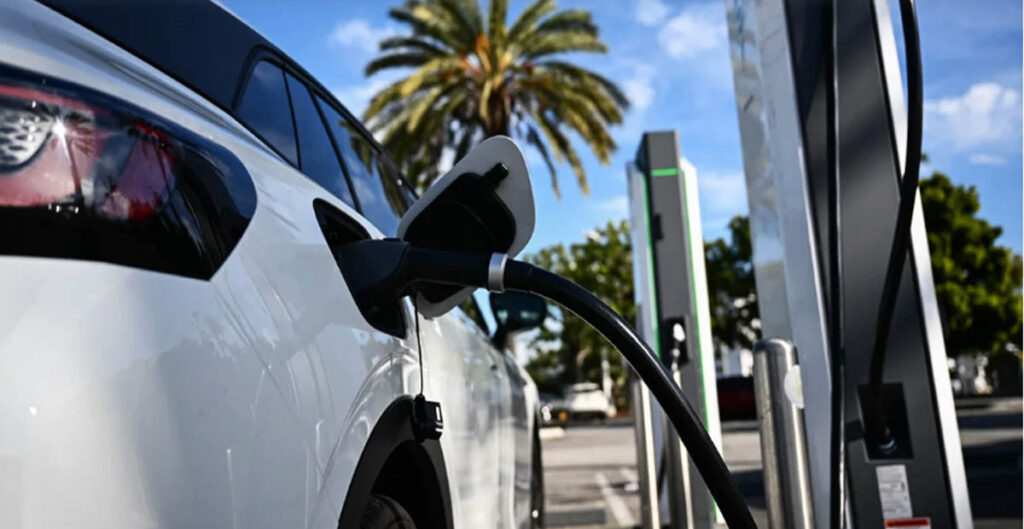
The time to invest in an electric vehicle (EV) might be more urgent than ever. With a $7,500 federal tax credit potentially on the chopping block, buyers considering an EV purchase may need to act quickly to secure this benefit. President-elect Donald Trump has expressed intentions to eliminate the credit, possibly as soon as he takes office. Some experts warn that its removal could even be retroactive to the beginning of the year, leaving little time for buyers to take advantage.
Federal Tax Credit in Jeopardy
“I would be very inclined to say yes, it’s going away,” said Ivan Drury, director of insights at Edmunds. While the exact method of elimination remains unclear, Drury anticipates the tax credit will not survive long into the new administration. This could be accomplished through early tax legislation or a regulatory change by a Trump-controlled Internal Revenue Service.
More Than Just the Tax Credit
Although the tax credit is a significant motivator, it’s not the only reason potential EV buyers should consider purchasing now. A combination of incentives from automakers and a surplus of unsold EV inventory has created a buyer’s market.
Slowing demand for EVs and an increase in available models have led to record-high inventories on dealer lots. Data shows that 64% of EVs currently in stock are last year’s models, compared to a much smaller percentage for traditional internal combustion vehicles. This surplus is pressuring automakers to offer generous financing options.
For instance, lease payments on non-Tesla EVs have dropped by 40% since the beginning of 2023. This decline is attributed to lower average interest rates on leases, making EVs more accessible than ever.
“If you buy an EV now, you’re not only sure of getting the EV tax credit that might not be there for much longer, you’ve also got incentives from automakers that can’t move their stock,” said Drury. “You’re doubling down. It won’t get any better.”
The Ripple Effect of Policy Changes
The potential elimination of the federal tax credit could have long-term consequences for the EV market. Legacy automakers, such as General Motors, Ford, and Stellantis, are already grappling with the high costs of transitioning to electric production. Without the tax credit, these companies might scale back their EV production, further limiting competition in the sector.
While automakers are lobbying Congress to maintain the tax credit, there’s no guarantee their efforts will succeed. A letter from the Alliance for Automotive Innovation, an industry group representing most automakers (except Tesla), argued that the credit is essential for competing with Chinese electric vehicles manufacturers. Despite this, neither the group nor individual automakers have disclosed contingency plans should the credit be eliminated.
Ironically, Tesla CEO Elon Musk, a vocal supporter of Trump during his campaign, has advocated for ending the tax credit. Musk believes its removal would benefit Tesla by reducing competition from legacy automakers and EV startups like Rivian, which rely heavily on subsidies to offset production costs.
Market Adjustments and State-Level Support
Despite concerns, experts believe the EV market will continue to grow, albeit at a slower pace. Chris Hopson, principal automotive analyst at S&P Global, anticipates modest gains in electric vehicles sales through 2025, driven by the introduction of up to 20 new models. However, the extent of growth may depend on how automakers adjust their pricing strategies.
“Automakers can play with pricing to adjust for lack of credits,” said Hopson. States like California are also considering introducing their own tax credits to cushion the impact of losing federal incentives.
A Narrow Window of Opportunity
For prospective electric vehicles buyers, the combination of a threatened tax credit, attractive financing deals, and abundant inventory creates a rare opportunity. With policy changes looming, acting now could mean securing substantial financial benefits and avoiding future price hikes.
Whether or not federal support for EVs continues, the market is poised for transformation. Buyers ready to make the switch to electric vehicles may find that the present moment offers the perfect mix of incentives and options.
For read specific news visit again https://khudaniajournal.com

